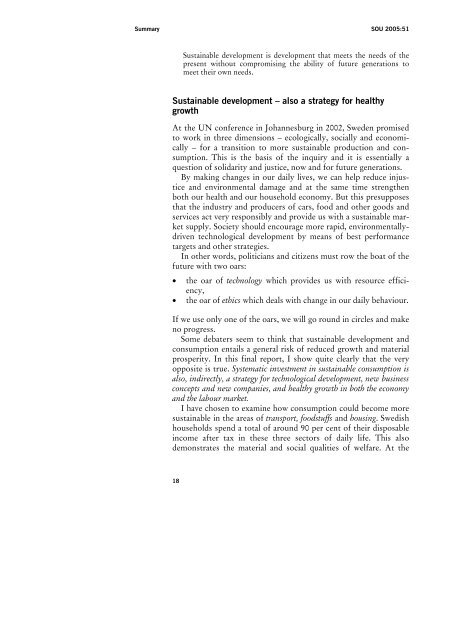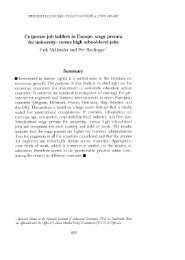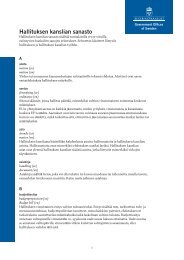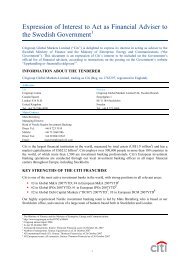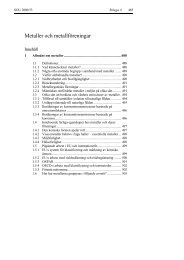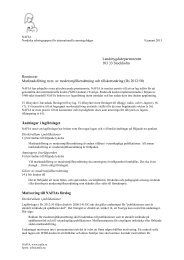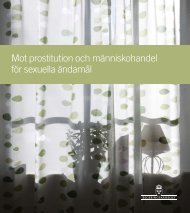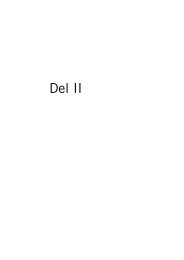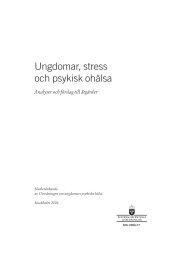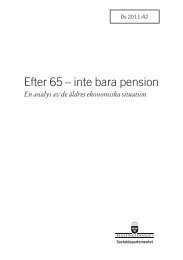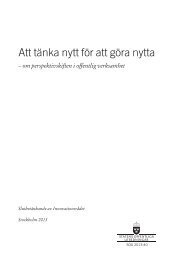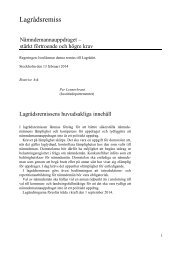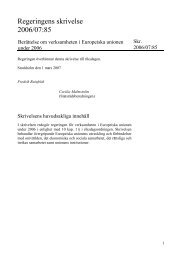Bilen, biffen och bostaden - Regeringen
Bilen, biffen och bostaden - Regeringen
Bilen, biffen och bostaden - Regeringen
Create successful ePaper yourself
Turn your PDF publications into a flip-book with our unique Google optimized e-Paper software.
Summary SOU 2005:51<br />
18<br />
Sustainable development is development that meets the needs of the<br />
present without compromising the ability of future generations to<br />
meet their own needs.<br />
Sustainable development – also a strategy for healthy<br />
growth<br />
At the UN conference in Johannesburg in 2002, Sweden promised<br />
to work in three dimensions – ecologically, socially and economically<br />
– for a transition to more sustainable production and consumption.<br />
This is the basis of the inquiry and it is essentially a<br />
question of solidarity and justice, now and for future generations.<br />
By making changes in our daily lives, we can help reduce injustice<br />
and environmental damage and at the same time strengthen<br />
both our health and our household economy. But this presupposes<br />
that the industry and producers of cars, food and other goods and<br />
services act very responsibly and provide us with a sustainable market<br />
supply. Society should encourage more rapid, environmentallydriven<br />
technological development by means of best performance<br />
targets and other strategies.<br />
In other words, politicians and citizens must row the boat of the<br />
future with two oars:<br />
• the oar of technology which provides us with resource efficiency,<br />
• the oar of ethics which deals with change in our daily behaviour.<br />
If we use only one of the oars, we will go round in circles and make<br />
no progress.<br />
Some debaters seem to think that sustainable development and<br />
consumption entails a general risk of reduced growth and material<br />
prosperity. In this final report, I show quite clearly that the very<br />
opposite is true. Systematic investment in sustainable consumption is<br />
also, indirectly, a strategy for technological development, new business<br />
concepts and new companies, and healthy growth in both the economy<br />
and the labour market.<br />
I have chosen to examine how consumption could become more<br />
sustainable in the areas of transport, foodstuffs and housing. Swedish<br />
households spend a total of around 90 per cent of their disposable<br />
income after tax in these three sectors of daily life. This also<br />
demonstrates the material and social qualities of welfare. At the


